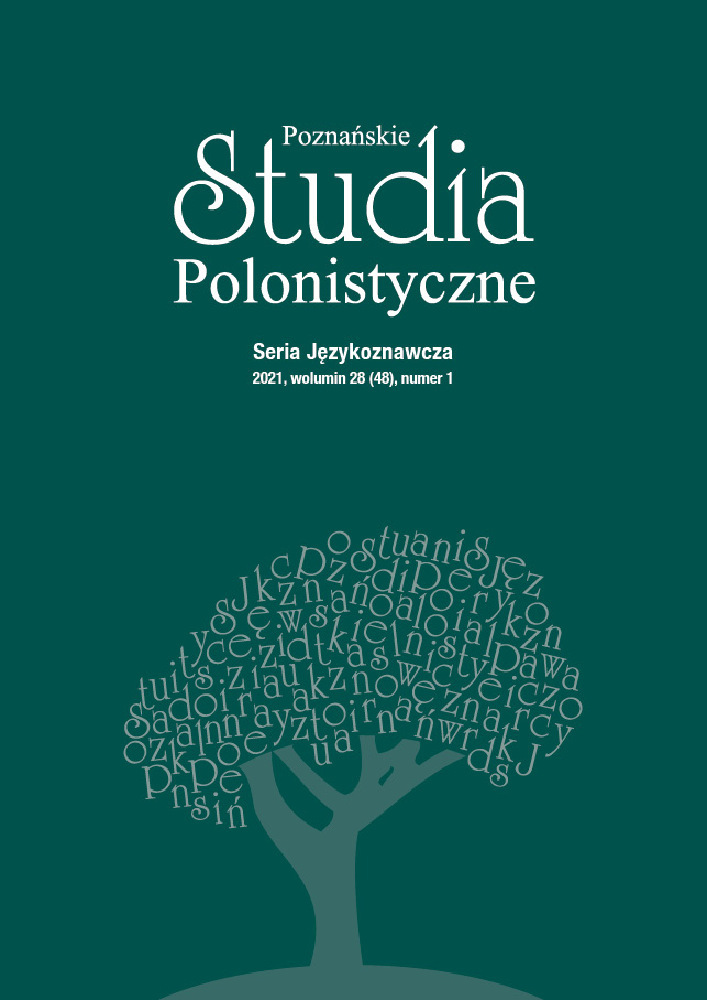Abstract
The subject of the article is the structure and linguistic shape of a specific type of legal genre – the reasons for the judgement. The authors, as members of the project and training team, actively participate in the transformation of the communication standards for the Polish judiciary community. They work with the assumption that the long-standing tradition of legal communication is hermetic and results in texts which are uncommunicative and unintelligible to an average reader. In the article, the authors present the social, media, linguistic and communication contexts of such texts. They emphasise their retropical character and indicate the possible direction of changes towards less hermetic and more everyday communication experiences, closer to the average reader. In the conclusion, they underline the importance of the intelligibility of a text as the basic parameter of effective communication and advocate for a systemic change of contemporary legal communication. Based on the texts of reasons for the judgement, they show that such a change is possible as long as it is accepted by the judiciary community in the first place.
References
Białecki Ireneusz (1998), Analfabetyzm funkcjonalny. Kultura tworzenia i wykorzy¬stywania informacji, w: Edukacja językowa Polaków. II Forum Kultury Słowa, red. Władysław Miodunka, Kraków, s. 13–35.
Bolter David Jay (2014), Przestrzeń pisma. Komputery, hipertekst i remediacja druku, Kraków.
Choduń Agnieszka (2013), Poprawność językowa uzasadnień orzeczeń sądów admi¬nistracyjnych, w: Uzasadnianie wyroków sądowych. Zasady i kontrowersje. Mate¬riały szkoleniowe NSA 17/2013, Warszawa, s. 5–30.
Gruszczyński Włodzimierz, Ogrodniczuk Maciej, red. (2015), Jasnopis, czyli mierzenie zrozumiałości polskich tekstów użytkowych, Warszawa.
Hadryan Milena (2015), Demokratyzacja języka urzędowego. Współczesne tendencje polityki językowej w Szwecji i w Polsce, Poznań.
Jadacka Hanna (2002), Poradnik językowy dla prawników, Warszawa.
janKomunikant (2011), Słownik polszczyzny rzeczywistej (siłą rzeczy – fragment), Łódź.
Król Marcin (2015), Pora na demokrację, Kraków.
Lewiński Piotr, red. (2015), Bełkot, czyli mowa ludzka pozbawiona sensu. Komunika¬cyjna funkcja wypowiedzi niejasnych, Olsztyn.
Nowak Paweł (2020), Naturalny porządek rzeczy w języku, Warszawa.
Ong Walter Jackson (1992), Oralność i piśmienność. Słowo poddane technologii, przeł. Józef Japola, Lublin.
Pleszczyński Jan (2020), Post-prawda i post-fałsz w epistemologii i komunikacji, w: Słowo – Historia, historie w słowach, red. Małgorzata Karwatowska, Robert Litwiński, Adam Siwiec, Lublin.
Rutkowski Mariusz (2015), Rozmowa urzędowa. Analiza konwersacyjno-dyskursywna, Warszawa.
Skudrzyk Aldona (2005), Czy zmierzch kultury pisma? O synestezji i analfabetyzmie funkcjonalnym, Katowice.
License
Authors
The Author declares that they are entitled to personal and property (material) copyrights to their work published in “Poznańskie Studia Polonistyczne. Seria Językoznawcza”, and that these rights are not limited by the terms of Author’s agreement. The Author warrants the originality, authorship, and sole ownership of all rights to the Work, and affirms that they have the right to grant all kinds of licenses hereinabove without infringing on the intellectual property rights of any third party, including personal rights.
The Author(s) retains copyright to their article and the right to freely dispose of the work, granting Adam Mickiewicz University in Poznań a non-exclusive, royalty-free licence under the Attribution-NoDerivatives 4.0 International (CC BY-ND 4.0) Creative Commons licence to use the Work without territorial restrictions for an indefinite period in the fields of use designated in the Author’s agreement.
Users
Interested Internet users are entitled to use works published in „Poznańskie Studia Polonistyczne. Seria Językoznawcza” since 2016 under the following conditions:
- attribution - obligation to provide, together with the distributed work, information about the authorship, title, source (link to the original work, DOI) and the license itself.
- no derivatives - the work must be preserved in its original form, without the author's consent it is not possible to distribute the modified work, such as translations, publications, etc.
Copyrights are reserved for all texts published before 2016.
Other
Adam Mickiewicz University in Poznań retains the right to the journal as a whole (including its layout, graphic design, title, cover design, logo and more).

